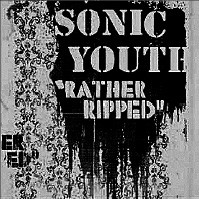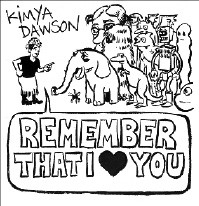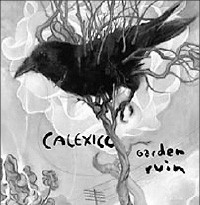The Village Voice once described Austin-based singer-songwriter James McMurtry as “Lou Reed with a nasal twang.” That’s almost right. Like Reed, McMurtry isn’t so much a singer as he is a rhythmic chanter and an occasionally savage storyteller with an eye for startling juxtapositions. His country-based song structures are steeped in folk traditions, fleshed out with sneakily psychedelic guitar work, and decorated with the faintest whispers of understated funk.
As is the case with Reed’s best work, the subjects of McMurtry’s songs take a back seat to richly described American landscapes that agitate his protagonists and ultimately motivate and define their actions. With the release of Childish Things, his first studio album in three years, one gets the sense that McMurtry is likewise a victim of the scenery, a man compelled to do dangerous things he never intended to do. Had the Voice described McMurtry as Lou Reed with Dylan’s absurdist wit, Springsteen’s tendency toward New Journalism, and a nasal twang, they would have nailed it.
Childish Things is a politically sensitive, beautifully detailed travelogue through the wasted heartland of the American psyche, exploring the whimsical and tragic dynamics of family rituals, attitudes toward immigration, and the costly de-industrialization of America. It uses everything from holiday gatherings to the exotic promise of traveling sideshows to build the sturdy foundations for McMurtry’s monolithic verse.
An infectious, rocked-up cover of the Porter Wagoner hit “Old Slewfoot” connects with the specter of tradition, while the iconoclastic title track comes on like a more prosaic, working-man’s version of John Lennon’s “Imagine.” But at the heart of the record is the anthemic “We Can’t Make It Here,” a tombstone to American values in the spirit of Jean Ritchie’s haunting “The L&N Don’t Stop Here Anymore.” It’s also the most fully and effectively realized protest song since Dylan penned “With God on Our Side” and the finest musical snapshot of the U.S. since Springsteen recorded Nebraska. That may sound like hyperbole, but a sample of the wordplay in a song that connects war, poverty, immigration, and outsourcing proves otherwise:
Vietnam Vet with a cardboard sign
Sitting there by the left turn line …
No one’s paying much mind to him
The V.A. budget’s just stretched so thin
And there’s more comin’ home from the Mideast war
We can’t make it here anymore.
And:
Some have maxed out all their credit cards
Some are working two jobs, living in cars
Minimum wage won’t pay for a roof …
If you gotta have proof, just try it yourself, Mr. CEO
See how far $5.15 will go
Take a part-time job at one of your stores
Bet you can’t make it here anymore.
“I never wanted to write a protest song,” McMurtry says by phone as he scarfs down a plate of fish at an eatery prior to a show at the Bowery Ballroom in New York City. “It’s easy for a political song to turn into a sermon, and for the last 30 years, musicians have shied away from political songs because they were afraid of a backlash. Well, I didn’t have enough fans to worry about a backlash, and things kept getting weirder and weirder and more dangerous. I figured it was time to stick my neck out and say what I had to say.”
McMurtry tips his hat to his closest musical kinsman, Steve Earle, the alt-country outlaw who rushed an entire album of protest material into music stores prior to the 2004 elections. “The best I could do was get [“We Can’t Make It Here”] out as an Internet download,” McMurtry says, “and it brought me more attention than anything I’ve done yet.”
McMurtry’s politically charged material may have brought him a bigger following, but it has also turned some of his older fans off.
“I got a snippy write-up in a Birmingham paper,” he says. “It said I sounded like ‘the pampered poser we thought he would be at the beginning of his career.'”
The critical jab is a reference to McMurtry’s father, Lonesome Dove author Larry McMurtry, who was still a struggling writer when his gifted son was in any position to be pampered.
McMurtry says his famous father’s most valuable contribution to his development as a musician was a record collection heavy with artists like Johnny Cash and Kris Kristofferson, but that’s simply not the case. The songwriter inherited his father’s gift for metaphor and the ability to turn complex ideas into muscular, precise prose. In 2004, two years before Mexican immigration became a hot topic, McMurtry addressed the issue in the downloadable version of “We Can’t Make It Here.” It’s a subject that still gets the musician hot under the collar.
“The economy could collapse,” he says, “and everybody’s looking for somebody to blame. It’s like the relationship between sheep herders and coyotes. If the sheep herder has a bad year, well, he can’t do anything about the market forces that affect lamb sales or the price of wool. So what does he do? He grabs his gun, goes out, and kills 100 coyotes. He can’t do anything about the market, but, by God, he can take care of those coyotes.”











